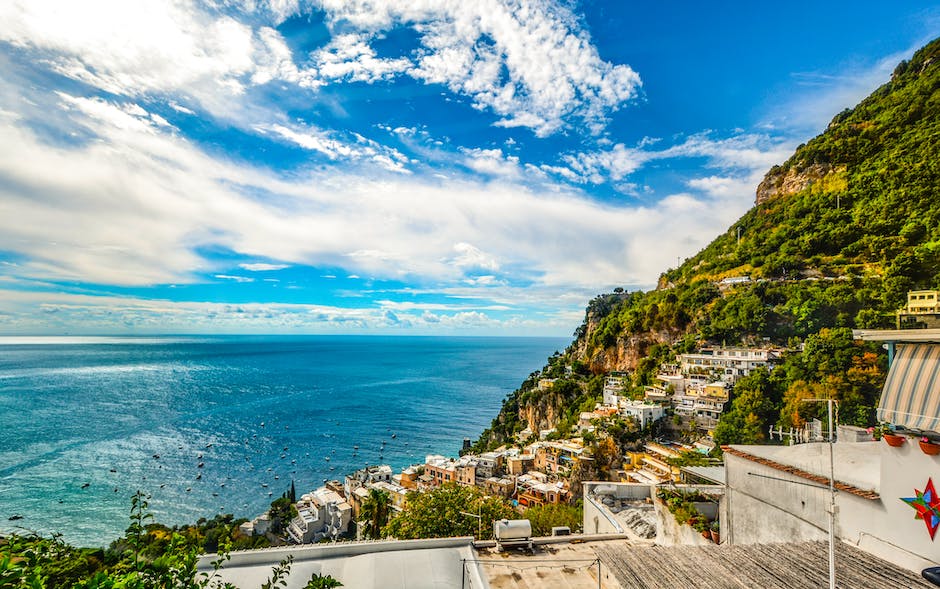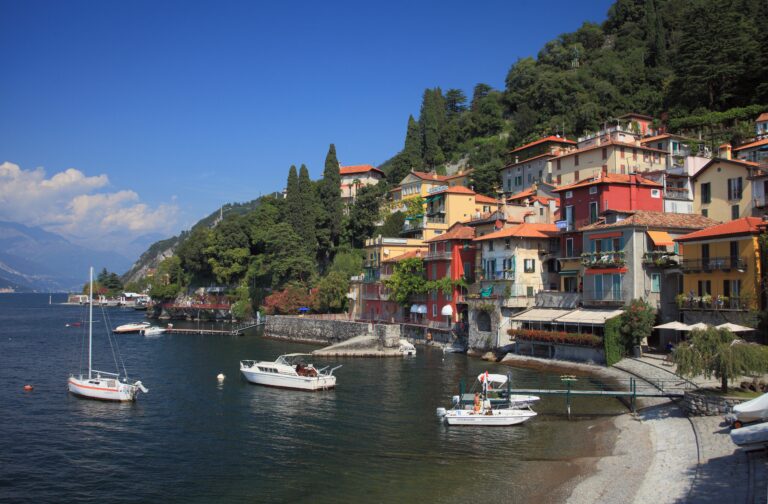Can a Foreigner Buy a House in Italy
If you desire to own a slice of Italian charm, soak in the Mediterranean sun, and savor la dolce vita, the thought of buying a house in Italy may have crossed your mind. But hold on! Before you daydream of a quaint Tuscan villa or a rustic Sicilian farmhouse, it’s essential to understand the ins and outs of purchasing real estate in this beautiful European country.
Italy, the land of pasta, pizza, and unparalleled culture, has enchanted travelers for centuries. However, when it comes to buying a house as a foreigner, navigating Italy’s legal maze can be a daunting task. In this article, we will demystify the intricacies and explore the possibilities for non-Italians to own property in the land famous for its art, history, and incredible landscapes.
So, if you’re ready to embark on a journey to unravel the practicalities of becoming a homeowner in the land of luscious vineyards and architectural wonders, fasten your seatbelts and let’s delve into whether it’s possible for a foreigner to buy a house in Italy.
Table of Contents
- Understanding the Regulations: Foreigner Property Ownership in Italy
- Exploring the Legal Framework: Requirements and Restrictions for Non-Italian Buyers
- Navigating the Italian Property Market: Opportunities for Foreign Investors
- Tax Implications for Foreign Buyers: A Comprehensive Guide to Owning Property in Italy
- Purchasing Property as a Non-Resident: Essential Considerations and Expert Advice
- Residency Permits for Foreign Property Owners: Obtaining Long-Term Stay in Italy
- FAQs
- Final Thoughts
Understanding the Regulations: Foreigner Property Ownership in Italy
Italy has specific regulations when it comes to property ownership for foreigners. If you’re considering investing in the picturesque Italian landscape, it’s crucial to understand these regulations. By familiarizing yourself with the rules and requirements, you can navigate the process smoothly.
Foreigners can purchase property in Italy with relatively few restrictions. However, it’s important to note that certain areas may have specific limitations due to environmental or cultural preservation concerns. Additionally, non-EU citizens may need to obtain authorization from the Italian Ministry of Defense if the property is near sensitive areas such as military installations. It’s always advisable to consult a legal professional with experience in Italian real estate to ensure compliance with these regulations.
When purchasing property in Italy, non-EU citizens should also consider the reciprocity principle. This means that if an Italian citizen can freely buy property in your home country, you’ll likely have the same rights in Italy. However, keep in mind that each case is assessed individually, and it’s essential to verify the reciprocity status between your home country and Italy. Taking the time to thoroughly understand these regulations and seeking professional advice will help you navigate the process of owning property in Italy successfully.
Exploring the Legal Framework: Requirements and Restrictions for Non-Italian Buyers
In order to facilitate a smooth and hassle-free experience for non-Italian buyers, it is crucial to gain a comprehensive understanding of the legal framework, including the specific requirements and restrictions that apply. Familiarizing yourself with these aspects will not only ensure compliance with the law, but also help you navigate the intricacies of the Italian market with confidence.
One key requirement for non-Italian buyers is the acquisition of a fiscal code, known as the Codice Fiscale. This unique identification number is essential when engaging in any legal transaction within Italy, such as purchasing property or establishing a business. Obtaining a Codice Fiscale can be done by submitting the necessary documents, such as a valid passport, at the local Italian consulate or tax office.
Additionally, it is important to understand the restrictions that may be imposed on non-Italian buyers. These restrictions can vary depending on the type of property and location. Some areas in Italy may have specific regulations in place to protect the cultural heritage or landscape, placing limitations on the purchase of properties. It is advisable to conduct thorough research or seek legal advice to ensure compliance with these restrictions before proceeding with any purchase. Emphasizing due diligence will not only help you avoid potential legal pitfalls, but also provide a solid foundation for a successful venture in Italy.
Navigating the Italian Property Market: Opportunities for Foreign Investors
When it comes to the Italian property market, foreign investors have a wide range of exciting opportunities to explore. Italy’s picturesque landscapes, rich culture, and charm make it an enticing destination for those looking to invest in real estate. Here are some key reasons why the Italian property market is worth your consideration:
- Diverse Investment Options: Whether you prefer historic villas tucked away in Tuscan hills, modern apartments in bustling cities like Rome and Milan, or charming coastal properties along the Amalfi Coast, Italy offers a diverse range of investment options to suit various tastes and preferences.
- Potential for High Returns: With its booming tourism industry and renowned attractions, Italy offers the potential for high rental yields, especially in tourist hotspots. The demand for vacation rentals remains consistent, allowing investors to benefit from a steady stream of income.
- Attractive Prices: While the property market in some Italian cities may be competitive, there are still affordable opportunities available, particularly in lesser-known regions. This allows foreign investors to capitalize on reasonable prices while still enjoying the unique Italian lifestyle.
Furthermore, Italy’s strategic location in the heart of Europe provides excellent connectivity, making it easily accessible for both property owners and potential tenants. The country also offers various visa options, allowing international investors to make the most of their stay. With a mix of investment options, the potential for attractive returns, and a desirable lifestyle, navigating the Italian property market can be a rewarding experience for foreign investors seeking to expand their portfolios.
Tax Implications for Foreign Buyers: A Comprehensive Guide to Owning Property in Italy
Italy, a country renowned for its breathtaking landscapes and rich cultural heritage, is an enticing destination for foreign buyers looking to own property. However, before embarking on this exciting journey, it is crucial to familiarize yourself with the tax implications that come with owning real estate in Italy. This comprehensive guide aims to provide you with valuable insights into the various taxes applicable to foreign buyers and ensure you are well-equipped to navigate Italy’s tax landscape with confidence.
1. Property Transfer Tax (Imposta di Registro): When purchasing a property in Italy, foreign buyers are subject to a one-time property transfer tax. Currently set at 9% of the property’s cadastral value, this tax must be paid within one month of the notarial deed. However, certain exemptions or reduced rates may apply in specific cases, such as first-time buyers or purchases made in certain areas designated for urban renewal.
2. Annual Property Tax (Imposta Municipale Unica, or IMU): As a property owner in Italy, you will also have to pay the annual property tax. This tax is based on the property’s cadastral value and may vary depending on the municipality where the property is located. The IMU is usually calculated at a rate ranging from 0.40% to 0.76% and must be paid by the 16th of June each year. However, it is worth noting that this tax may be subject to changes, so staying informed about any updates or amendments is crucial to avoid any penalties or issues with local tax authorities.
Owning property in Italy can be a dream come true, but it is essential to understand the tax implications involved. By familiarizing yourself with the property transfer tax and annual property tax, you will be better equipped to make informed decisions and ensure compliance with Italian tax regulations. Remember to consult with a professional tax advisor or legal expert who specializes in Italian taxation to navigate this process smoothly and enjoy your property ownership journey in Italy.

Purchasing Property as a Non-Resident: Essential Considerations and Expert Advice
When it comes to purchasing property as a non-resident, there are a number of essential considerations to keep in mind. First and foremost, familiarize yourself with the legal requirements and regulations of the country where you plan to buy. Each country may have its own unique set of rules and restrictions, and being aware of these upfront can save you from potential headaches down the road. It is crucial to consult with a local real estate attorney or expert who is well-versed in the local laws and can provide tailored advice to ensure a smooth and legally compliant purchase.
Another crucial aspect to consider is financing your property purchase. As a non-resident, it might be challenging to secure traditional financing options, so it’s important to explore alternative options. Research different banks and lenders that offer mortgages for non-residents, and carefully compare interest rates, terms, and requirements. Additionally, budgeting for additional fees and taxes is paramount. Understand the various costs associated with property acquisition, such as stamp duty, legal fees, and maintenance charges. Being financially prepared will help you make informed decisions and avoid unexpected financial burdens.
Residency Permits for Foreign Property Owners: Obtaining Long-Term Stay in Italy
Are you a foreign property owner dreamy-eyed about living la dolce vita in Italy? Well, we’ve got some great news for you! Obtaining a long-term residency permit in Italy is not only possible but also remarkably straightforward for property owners. Here’s what you need to know to make your dream of becoming a bona fide Italian resident a reality!
1. Property Ownership: As a foreigner owning property in Italy, you’re already one step closer to living there permanently. The Italian government offers a special residency permit called “Permesso di Soggiorno per Motivi di Famiglia” (Permit for Family Reasons) to property owners who meet the requirements.
- Gather Documentation: Start by obtaining your property’s deed or lease agreement, a valid passport, and proof of financial means to sustain yourself during your stay.
- Apply at a Local Authority: Once you have your documentation in hand, make an appointment at your local Questura (police headquarters) or Prefettura (government office) to submit your application in person.
- Provide Additional Documents: You may be required to submit additional documents such as proof of health insurance, a detailed itinerary of your stay, and proof of address in Italy.
FAQs
1. Can a foreigner buy a house in Italy? Yes, foreigners can buy property in Italy without any restrictions.
2. Are there any restrictions on the types of properties foreigners can buy? Foreigners can generally buy any type of property, including residential, commercial, and land.
3. Is there a difference in the buying process for foreigners compared to Italian citizens? The buying process is largely similar, but foreigners might need to obtain a tax code (codice fiscale) and follow specific legal procedures.
4. Are there any areas where foreigners cannot buy property? There are certain restricted areas near sensitive locations, such as military installations, where property purchases might face restrictions.
5. Do foreigners need a visa or residence permit to buy property in Italy? No, owning property doesn’t require a visa or residence permit, but it could potentially help in the long run if you plan to spend significant time in Italy.
6. Can a foreigner get a mortgage to buy property in Italy? Yes, foreigners can obtain mortgages from Italian banks to buy property, though the terms and conditions might vary.
7. Are there any additional taxes for foreigners buying property in Italy? Foreigners are subject to the same property taxes as Italian citizens, including transfer taxes and registration fees.
8. Is it necessary to hire a real estate agent or lawyer when buying property in Italy? While it’s not mandatory, it’s highly recommended to have a local real estate agent and possibly a lawyer to navigate the legal and administrative processes.
9. Can I rent out the property I buy in Italy? Yes, you can rent out your property to tourists or long-term tenants, but there might be specific regulations and taxes related to short-term rentals.
10. Are there any restrictions on selling property as a foreigner? There are no specific restrictions on selling property as a foreigner; however, you need to adhere to Italian property laws and regulations.
11. How do inheritance laws apply to property owned by foreigners in Italy? Inheritance laws can be complex, but generally, your property will be subject to Italian inheritance laws unless you specify otherwise in your will.
12. Do I need to speak Italian to buy property in Italy? While it’s helpful to have some knowledge of Italian, it’s not mandatory. Many real estate agents and legal professionals speak English.
13. Are there any cultural considerations when buying property in Italy as a foreigner? Understanding local customs and etiquette can help facilitate the buying process and integration into the community.
14. Can I buy a historic property in Italy? Yes, you can buy historic properties, but they might come with preservation restrictions or requirements.
15. Do I need to establish residency to buy property in Italy? No, owning property doesn’t require residency, but if you plan to live in Italy for an extended period, you might consider obtaining residency.
16. How long does the property buying process usually take in Italy? The process can take a few months, involving property searches, negotiations, legal checks, and paperwork.
17. Are there any specific regions popular among foreigners for property investment? Tuscany, Umbria, and the Amalfi Coast are some of the popular regions for foreign property buyers due to their beauty and cultural heritage.
18. Do I need to pay property taxes even if I’m not a resident of Italy? Yes, property owners are required to pay property taxes, regardless of their residency status.
19. Can I buy property in Italy as a non-EU citizen? Yes, non-EU citizens have the same property buying rights as EU citizens in Italy.
20. What should I be cautious about when buying property in Italy as a foreigner? Be cautious of potential language barriers, thoroughly understand the terms of the contract, and ensure compliance with all legal and tax requirements.
Closing Remarks
In conclusion, the question of whether a foreigner can buy a house in Italy can be answered with a resounding yes! Italy welcomes international buyers to invest in its beautiful real estate market. While there may be some legal and bureaucratic processes to go through, the opportunity to own a piece of Italian paradise is definitely attainable. So, if you’ve been dreaming of a quaint villa in Tuscany or a charming apartment in Rome, don’t hesitate to explore the possibilities. Start your journey towards experiencing la dolce vita today!







